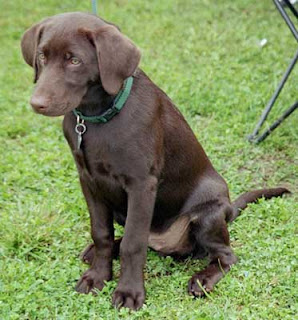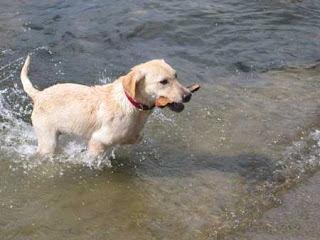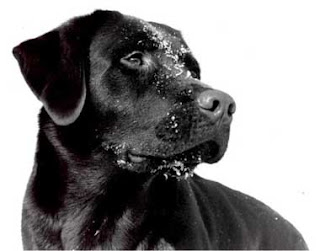Stay
 “Stay” can easily be taught as an extension of what you’ve already been practicing. To teach “stay”, you follow the entire sequence for reinforcing a “sit” or “down”, except you wait a bit longer before you give the release word, “OK!” Wait a second or two longer during each practice before saying “OK!” and releasing your dog to the positive reinforcer (toy, treat, or one of life’s other rewards).
“Stay” can easily be taught as an extension of what you’ve already been practicing. To teach “stay”, you follow the entire sequence for reinforcing a “sit” or “down”, except you wait a bit longer before you give the release word, “OK!” Wait a second or two longer during each practice before saying “OK!” and releasing your dog to the positive reinforcer (toy, treat, or one of life’s other rewards). |
| Labrador Retriever Training |
 |
| Labrador Retriever Training |
Do not step on the leash to make your Labrador Retriever lie down! This could badly hurt his neck, and will destroy his trust in you. Remember, we are teaching our dogs to make the best choices, not inflicting our answers upon them!
Come
 |
| Labrador Retriever Training |
 |
| Labrador Retriever Training |
 |
| Labrador Retriever Training |
You can help guide him into the right location. Use your hands as “landing gear” and pat the insides of your legs at his nose level. Do this while backing up a bit, to help him maneuver to the straight-in-front exactly facing-you position. Don’t say the word “come” while he’s maneuvering, because he hasn’t! You are trying to make “come” the end result, not the work in progress.
 |
| Labrador Retriever Training |
Building a Better Recall
 |
| Labrador Retriever Training |
 |
| Labrador Retriever Training |
 |
| Labrador Retriever Training |
Sooner or later every dog tests his training. Don’t be offended or angry when your dog tests you. No matter how positive you’ve made it, he won’t always want to do everything you ask, every time. When he explores the “what happens if I don’t” scenario, your training is being strengthened. He will discover through his own process of trial and error that the best – and only – way out of a command he really doesn’t feel compelled to obey is to obey it.
Sooner or later you would know what to do with your labrador retriever because practice makes perfect, you know? And i believe you all know that, i mean everyone could write a book when they have went through anything (experience). But not most of them are doing it, only some of them, that's why they are called writer, that's a wrap, hope you find this Labrador Retriever Training – Practical Commands Training post helpful ^_^
No comments:
Post a Comment